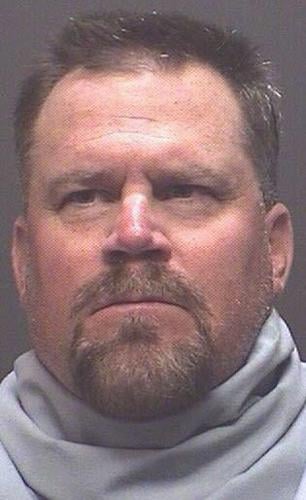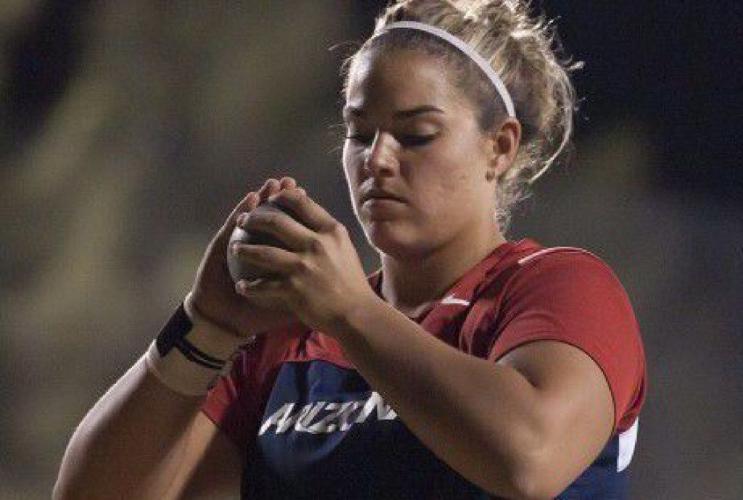“Please provide the name and contact information of each and every person to whom you have sent photographs and or videos of your exposed breasts, vulva and/or anus since January 1, 2010.”
The taxpayers of Arizona paid former University of Arizona track coach Craig Carter’s legal team to ask for that information. Representing Carter, Tucson attorney John Munger and his associates also asked Baillie Gibson, a former UA track athlete who is suing Carter, for this:
“The name and contact information of each and every person with whom you have engaged in sexual intercourse or had a sexual encounter since January 1, 2010.”
So far, the state of Arizona has paid the Munger Chadwick firm about $393,000 to provide a defense for Carter in the lawsuit filed against him and the university by Gibson. We are required to, I’m informed, because under Arizona law the state government must cover the defense of an employee being sued for behavior he engaged in while acting within the scope of his job.
The Arizona Attorney General’s Office is representing the UA and its current and former employees, but Carter needs separate counsel because “due to the allegations made in the lawsuit, there is a conflict between the University of Arizona and the former track coach,” attorney general’s spokesman Mia Garcia told me via text message.
But are we really required to underwrite a campaign of slut-shaming or victim-blaming? And are we actually subsidizing an effort to countersue Gibson and her attorney, Lynne Cadigan — an effort that essentially blames Gibson for crimes that Carter is accused of committing against her? Those are the questions that struck me after reviewing Carter’s cases.
This goes back, as you may know, to the conflict that exploded into public view in Tucson in May 2015. Carter, an assistant track coach at the UA, was arrested and accused of committing four felonies, including aggravated assault and stalking, against Gibson, one of the athletes he coached. They’d had a sexual relationship for most of the previous three years.
That criminal case is, almost inexplicably, ongoing, more than two years later. It’s set for trial in August, but Carter’s criminal-case attorney, Dan Cooper, has asked for the trial to be postponed again because of an ESPN story on the case that was published last month. I say “inexplicably” because this is not a particularly complicated case, and Carter admitted the behavior he’s been charged with — in an interview with UA police, in a recorded phone call with the victim, and in text messages.
“You can’t run,” he told Gibson in a call recorded in April 2015 and played on ESPN’s “Outside the Lines” segment last month. “I know exactly where you’ll be every day. I’m going to get you some way. I just have this feeling you need to suffer. I don’t care if I kill you and kill myself. I don’t care.”
To UA police, Carter admitted that when he was angry at Gibson, he pulled out a box cutter and, as he told the police, “I think I said, ‘I’ll cut your face up so nobody will ever want you again, because I’m not going to have anything, and neither are you.’ ”
While this seems to be a slam-dunk criminal case, the civil suit is more complicated and has become downright nasty, as well as costly. That’s because Gibson has accused Carter of sexual assault and abuse, arguing that the whole relationship was coerced, pointing out that Carter held power over her as her coach. Carter says the relationship was between two consenting adults.
Munger’s argument in response has essentially been: The whole problem was the fault of a sexually promiscuous athlete of adult age who ruined her coach’s life. Gibson, Munger says in court filings, “initiated, instigated, and actively, aggressively, and enthusiastically pursued a relationship with Craig Carter, whom she viewed as a prized conquest.”
Gibson’s attorneys include Lynne Cadigan, best known for revealing the clergy sexual-abuse scandal in the Diocese of Tucson and forcing it into bankruptcy. They characterized Carter’s defense as an effort at “slut-shaming and victim-bashing.”
“Put simply, defendants are using the discovery process as a weapon to shame, expense and harass plaintiff into submission,” Gibson’s attorneys wrote in an April 7 motion.
They made that argument in a motion to end the defense team’s effort to obtain the names and contact info of anyone whom Gibson had sent a pornographic video or photo, and the names and contact info of any sexual partners. On May 22, Pima County Superior Court Judge Sarah Simmons ordered that those two demands for information would not be permitted.
While we are apparently obligated to pay the escalating costs of this effort to smear the student and spare the coach, we are not supposed to be paying for the counterclaim that Carter’s legal team filed against Gibson and Cadigan in March 2016.
That claim alleges the athlete and her attorney defamed Carter by saying publicly that the relationship amounted to sexual assault and abuse, that they cast him in a false light and that they intentionally inflicted emotional distress on Carter and his wife, Jo-Anne. Gibson, they argue, had “the intention of destroying his career and/or severely damaging or destroying his relationships with the members of his family.”
When I asked Megan Rose, spokeswoman for the Arizona Department of Administration, how the counterclaim is being accounted for, she said via email, “The state is not paying for any counterclaims.” Indeed, Carter’s attorneys have said they are taking the counterclaim on contingency, meaning they will get a percentage of any award won through the counterclaim.
But I don’t see how the distinction can be so clearly made when the facts and players involved in both cases overlap. If, for example, the attorneys depose Craig and Jo-Anne Carter for the defense of the civil suit and charge the state for that work, doesn’t that also benefit the counterclaim against Gibson and her attorney? And when they seek and review Gibson’s text messages, emails and other digital records, those too could benefit either the defense of the civil suit or the counterclaim.
I wanted to ask Munger and his fellow attorneys in the case about this issue, but they didn’t return my calls or emails. So I spoke with five Arizona attorneys Thursday and Friday about this question of segregating the costs. All said that it appeared at least some of the work the state is paying for in the defense of the civil suit would also benefit Carter’s counterclaim.
In other words, it would be hard for taxpayers to avoid subsidizing the lawsuit the Carters have filed against the athlete Gibson and her attorney Cadigan.
“In my opinion, our government is subsidizing a private tort action for no other purpose then to harass the victim,” said Stephen Portell, a civil attorney who has represented both plaintiffs and defendants in civil cases. “The message to anyone who is a victim is be quiet or you’ll get sued by a private, government-hired lawyer.”
Now, it may be possible when the case is done to allocate a percentage of overlapping costs to the civil-suit defense and another percentage to the counterclaim, as Tucson attorney Rick Gonzales suggested to me. That would be fairer than pretending there is no overlap at all and continuing to push wheelbarrow loads of money to Munger’s firm.
But Portell, who acknowledged he has tangled with Munger previously, suggested an alternative that I found appealing. If Carter’s legal team truly believes in the counterclaim, and is not using it to harass Gibson and her lawyer, why don’t they stop charging the state for their defense work altogether and simply accept as their pay the money that flows in once they win their defamation suit?
Seems like an honorable solution that respects Arizona’s taxpayers.





